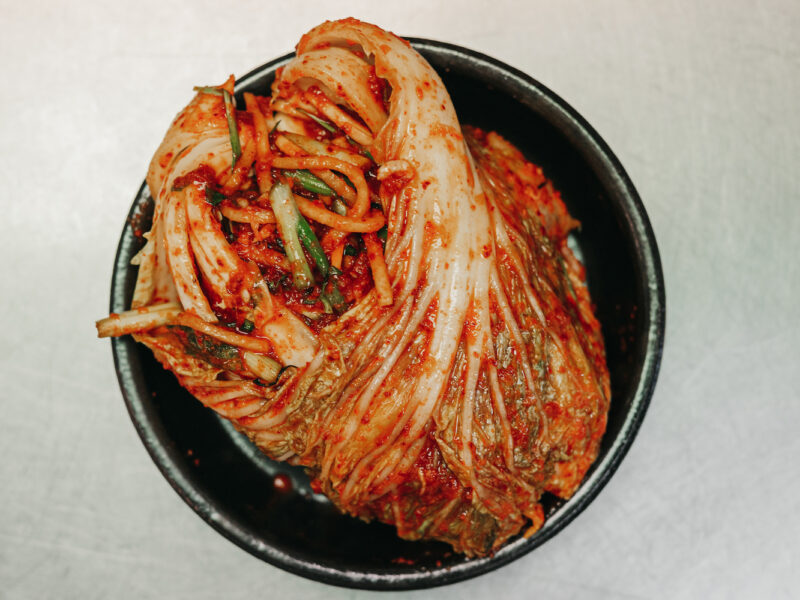
Chamberlains of London – The fermented food revolution is taking the culinary world by storm. Once seen as niche or traditional, foods like kimchi, miso, and kombucha are now making a major comeback. People are increasingly turning to fermented foods for their taste, health benefits, and versatility. From home kitchens to fine dining restaurants, fermented foods are being embraced by food enthusiasts everywhere.
Fermented foods undergo fermentation, a natural process where microorganisms like bacteria or yeast break down sugars in food. This process creates a variety of flavors, textures, and beneficial compounds. Traditional fermented foods such as kimchi, miso, and kombucha have long been staples in many cultures. Today, these foods gain widespread attention due to their health benefits and ability to enhance various dishes. As a result, many people increasingly include these foods in their daily diets. Moreover, they offer an exciting way to add complexity to meals while promoting good digestion.
“Read about: Fresh or Frozen? Understanding the Nutritional Benefits of Both Seafood Types”
Kimchi is a popular fermented vegetable dish from Korea, typically made with cabbage, radishes, and various spices. The main ingredient, cabbage, ferments with beneficial bacteria, resulting in a tangy, flavorful dish. Kimchi is known for its rich, spicy flavor, but it also offers numerous health benefits. Packed with probiotics, vitamins, and fiber, it supports digestive health and boosts immunity.
In addition to its health benefits, kimchi is incredibly versatile. You can eat it on its own, add it to soups, or serve it as a side dish with rice. Recently, chefs have experimented with kimchi in various ways, incorporating it into everything from tacos to pizza. This innovation has significantly contributed to its rise in popularity.
Miso is another fermented food that has been around for centuries. It is a paste made from fermented soybeans, salt, and koji, a type of fungus. Miso serves as a staple in Japanese cuisine and flavors soups, sauces, and marinades. Its umami-rich taste makes it a favorite for adding depth and complexity to dishes.
In addition to its rich flavor, miso offers numerous health benefits. It provides protein, fiber, and essential minerals. Like kimchi, miso contains probiotics that support gut health. The fermentation process also helps break down the soybeans, making the nutrients in miso easier to digest and absorb.
Miso has also made its way into modern dishes outside of traditional Japanese cuisine. From miso-glazed vegetables to miso ice cream, this fermented food has gained popularity among foodies eager to experiment with new flavors.
“Read more: Dealing with Sinusitis in Kids: Symptoms, Treatment, and Prevention”
Kombucha is a fermented tea that has gained immense popularity over the past decade. People make it by fermenting sweetened tea with a symbiotic culture of bacteria and yeast (SCOBY). Known for its tangy and effervescent taste, kombucha serves as a popular health drink. It provides probiotics, antioxidants, and organic acids.
Kombucha enthusiasts highlight its many health benefits. It supports digestion, boosts the immune system, and may improve mental clarity. The growing demand for kombucha has led to the creation of flavored varieties, with options such as fruity blends and spicy ginger versions. Many people now choose kombucha as a refreshing alternative to sugary sodas, enjoying its balance of flavor and health benefits.
The resurgence of fermented foods is driven by several factors. First, people are becoming more health-conscious and seeking foods that benefit gut health. Fermented foods, rich in probiotics, promote a healthy microbiome. As more studies emphasize the importance of gut health, consumers are embracing these foods for their digestive and immune-boosting properties.
Second, interest in sustainable and minimally processed foods has grown. Fermentation serves as a natural preservation method, requiring few ingredients and having a low environmental impact. As sustainability becomes more crucial, many consumers are turning to fermentation to reduce waste and foster healthier food systems.
Lastly, chefs and food innovators contribute to the trend by creating new ways to use fermented flavors. From kimchi-topped burgers to miso-flavored desserts, these culinary experiments have made fermented foods more mainstream. This creativity has helped make fermented foods accessible to a broader audience.
Fermented foods are packed with benefits that go beyond taste. One of the most significant benefits is their positive effect on gut health. The probiotics produced during fermentation help balance the gut microbiome, which is essential for proper digestion, immunity, and overall well-being. Additionally, fermented foods are rich in nutrients like vitamins B and K, minerals, and antioxidants.
Fermented foods may also help improve mental health. Research has shown a connection between gut health and mental well-being, with some studies suggesting that probiotics can reduce symptoms of anxiety and depression. By adding fermented foods to the diet, individuals may experience improved mood and cognitive function.
The fermented food revolution is here to stay. With their rich flavors, health benefits, and versatility, foods like kimchi, miso, and kombucha are making a comeback in kitchens and restaurants worldwide. As more people discover the benefits of fermented foods, this culinary trend is likely to continue to grow. Whether you’re incorporating them into your meals for their taste or their health benefits, fermented foods are a delicious and nutritious addition to any diet.